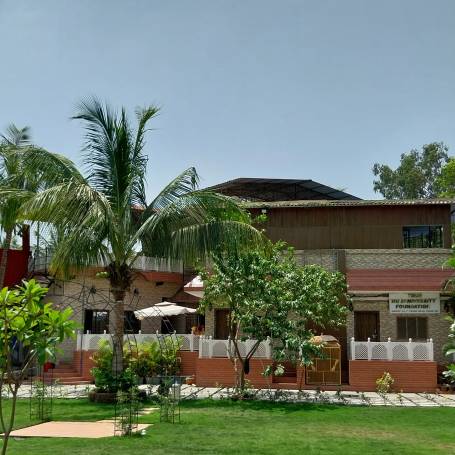How to Support a Loved One at a De-Addiction Centre in Pune

Watching a loved one struggle with addiction is emotionally challenging. It’s even more difficult when they take the courageous step of entering a de-addiction centre. Whether they’re seeking recovery from alcohol, drugs, or behavioral addictions, your support during this time can significantly influence their journey. If your loved one is in a de-addiction centre in Pune, here’s how you can provide the emotional and practical support they need.
Understanding the Journey of Recovery
Before you can help someone else, it’s essential to understand the recovery process. De-addiction is not a one-time event but a long-term commitment involving physical, mental, and emotional healing. Treatment often includes detox, therapy, medication, group counseling, and lifestyle changes.
In Pune, several reputed de-addiction centres like Muktangan, Manas Foundation, and Jagruti Rehab offer holistic treatment programs. While these centres provide professional care, your role as a family member or friend can help the patient feel connected, hopeful, and supported.
1. Educate Yourself About Addiction
To truly support your loved one, start by educating yourself about addiction. Understand that addiction is a disease, not a moral failure. It affects the brain’s reward system and often involves a cycle of relapse and recovery.
In Pune, many centres offer family therapy and education programs where relatives can learn about:
- The science of addiction
- Common triggers and relapse prevention
- Healthy communication techniques
- The importance of boundaries
By gaining this knowledge, you’ll be better prepared to respond with compassion rather than frustration.
2. Stay in Touch – The Right Way
Patients in de-addiction centres may have limited phone access or visiting hours, depending on the treatment phase. But maintaining appropriate and consistent contact can reassure them that they are not alone.
Here’s how you can stay connected:
- Write letters or emails (if allowed): Share positive updates, memories, and motivational thoughts.
- Attend visiting hours or family sessions: These sessions are usually guided by a therapist and help rebuild trust.
- Send care packages: Include books, journals, healthy snacks, or other allowed items that can lift their spirits.
Avoid guilt-tripping or bringing up painful memories during communication. Focus on love, support, and hope.
3. Be Patient and Avoid Judgment
Recovery is a marathon, not a sprint. Your loved one might experience mood swings, defensiveness, or even denial during their time in rehab. Be patient. Healing takes time, and so does rebuilding relationships.
Avoid judgmental phrases like:
- “Why didn’t you just stop?”
- “You’re putting us through so much.”
- “Haven’t you learned your lesson?”
Instead, use compassionate language like:
- “I’m proud of you for getting help.”
- “We’re here to support your journey.”
- “I know this is difficult, and I believe in you.”
4. Participate in Family Therapy
Most reputed de-addiction centres in Pune offer family therapy sessions. These are guided by professionals and are designed to help families:
- Understand addiction dynamics
- Rebuild broken trust
- Improve communication
- Set healthy boundaries
Your involvement in therapy not only supports your loved one but also helps you heal emotionally from the impact of addiction.
5. Encourage Without Enabling
Supporting someone doesn’t mean rescuing them from consequences. One common mistake families make is enabling — unintentionally supporting addictive behavior. This could be:
- Giving money they might use to buy substances
- Lying on their behalf
- Avoiding confrontation to keep peace
In recovery, it’s crucial to encourage independence and accountability. Support them emotionally, but let them take responsibility for their actions and commitments. Enabling can delay or derail progress.
6. Focus on Self-Care
Supporting someone through rehab can take a toll on your mental and physical health. Remember, you cannot pour from an empty cup. Make time for:
- Rest and relaxation
- Physical activity
- Support groups like Al-Anon or Nar-Anon
- Therapy or counseling
Taking care of yourself ensures you’re emotionally strong and balanced enough to provide consistent support.
7. Prepare for the Transition Home
When your loved one is discharged from the Pune de-addiction centre, the real work of recovery begins. The transition from a structured environment back to daily life can be overwhelming.
Here’s how to ease the transition:
- Create a safe, substance-free environment
- Help establish a daily routine
- Encourage outpatient therapy or support group attendance
- Stay vigilant for relapse signs (such as isolation, mood changes, or withdrawal)
Work with the rehab team to create a relapse prevention plan that includes emergency contacts, therapy appointments, and coping strategies.
8. Celebrate Milestones – Big or Small
Recovery is made up of countless small victories. Celebrate these to reinforce positive behavior. This could be:
- One week sober
- Attending therapy consistently
- Handling stress without turning to substances
You don’t need extravagant gifts or events. A heartfelt message, a small dinner, or simply saying “I’m proud of you” can have a powerful impact.
Why Support Matters – Especially in Pune’s Cultural Context
In India, addiction often carries a heavy social stigma. In cities like Pune, with a mix of urban lifestyle and traditional values, many families struggle with shame or fear of judgment.
But your unconditional support can help break this cycle. By standing by your loved one openly and without shame, you not only help them heal but also encourage a more compassionate and informed society.
Pune has a growing community of mental health advocates, rehab centres, and support networks. Whether through in-person therapy or online groups, you can find resources tailored to your needs.
Final Thoughts
Supporting a loved one through their time in a de-addiction centre in Pune is not easy, but it is one of the most profound acts of love. Recovery is not a destination; it’s a continuous journey that requires trust, patience, and hope.
Your belief in your loved one’s potential can make all the difference. Stay informed, stay supportive, and above all — never give up on them. Because recovery is not just possible — it’s powerful, and it begins with the strength of connection.



